On Tuesday 13 october 2015, Dr. Darren Lilleker, Dr. Dan Jackson and Dr. Anna Feigenbaum from the Faculty of Media and Communication travelled up to London to lead sessions at the Political Studies Association’s first annual PSA Schools Conference. The event brought together 150 Sixth Form students from schools around London and the South East for an afternoon of exploring Pressure Groups, Anti-politics and Representation. In packed out workshop room, Dr. Lilleker and Dr. Jackson sparked debate over the rise of digital politics, asking in their session on Social Media and Political Communication, “Does social media offer a new way to develop a more dialogical relationship between citizens and their elected representatives?” Reflecting on the workshop, Dr. Lilleker said, ““It was interesting to hear the views of young people on digital media use and get them thinking about how their behaviour links to broader social trends in political engagement.”
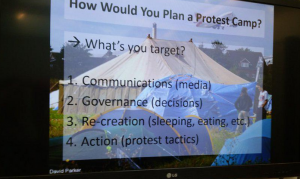 Dr. Anna Feigenbaum’s session drew from her research into protest camping. She engaged students in a hands-on activity, designing blueprints and political strategies for their own hypothetical protest camps. Choosing Women’s Equality as their campaign issue, following a compelling keynote by Sophie Walker, Leader of the Women’s Equality Party, the students choose their protest sites, including Parliament and the Playboy Mansion. From clever hashtags to lodging people on houseboats in the Thames to politically subversive games of pin-the-tail-on-the-bunny, students showed their creativity and tactical savvy.
Dr. Anna Feigenbaum’s session drew from her research into protest camping. She engaged students in a hands-on activity, designing blueprints and political strategies for their own hypothetical protest camps. Choosing Women’s Equality as their campaign issue, following a compelling keynote by Sophie Walker, Leader of the Women’s Equality Party, the students choose their protest sites, including Parliament and the Playboy Mansion. From clever hashtags to lodging people on houseboats in the Thames to politically subversive games of pin-the-tail-on-the-bunny, students showed their creativity and tactical savvy. 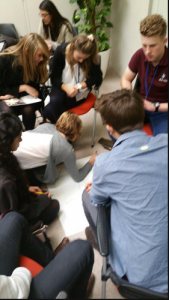
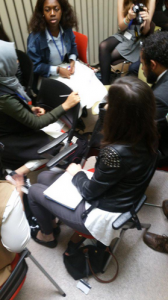
Taking part in the Question and Answer Panel Session that rounded out the day, Dr. Anna Feigenbaum joined Campbell Robb, CEO of Shelter; David Bowles, Director of Public Affairs of RSPCA; Graham Smith, CEO of Republic and Maddy Ryle of the Democracy Centre in a lively discussion facilitated by Dr Andy Mycock (University of Huddersfield) that ranged from the purpose of direct action to strategic uses of the law in political campaigning. Covering questions of Britishness and the Monarchy and the ethics of lobbying, sixth formers in the audience showed they were far more than an apathetic generation of youth. Politically reflective and insightful, they spoke of media misrepresentations of the working class, the need to scrutinise profiteering bankers, growing inequality in representative politics and when engaging in civil disobedience might be justified.
Speaking  of his participation in the event, Dr. Jackson – who also convenes the PSA Media and Politics Specialist Group – said, “It is great to engage young people with some of the big political challenges of our day. Plus, this is a great way to put Bournemouth on the map, in terms of politics education at BU, as we develop our curriculum around politics, political communication and social movements.” Based on the success and positive feedback from this first event, the Political Science Association has plans to make the conference an annual affair. An exciting opportunity to share our BU Research in an interactive way with young people, we would encourage colleagues to join in future events!
of his participation in the event, Dr. Jackson – who also convenes the PSA Media and Politics Specialist Group – said, “It is great to engage young people with some of the big political challenges of our day. Plus, this is a great way to put Bournemouth on the map, in terms of politics education at BU, as we develop our curriculum around politics, political communication and social movements.” Based on the success and positive feedback from this first event, the Political Science Association has plans to make the conference an annual affair. An exciting opportunity to share our BU Research in an interactive way with young people, we would encourage colleagues to join in future events!
With thanks to James Ludley and Helena Djurkovic of the PSA for organising this innovative event.
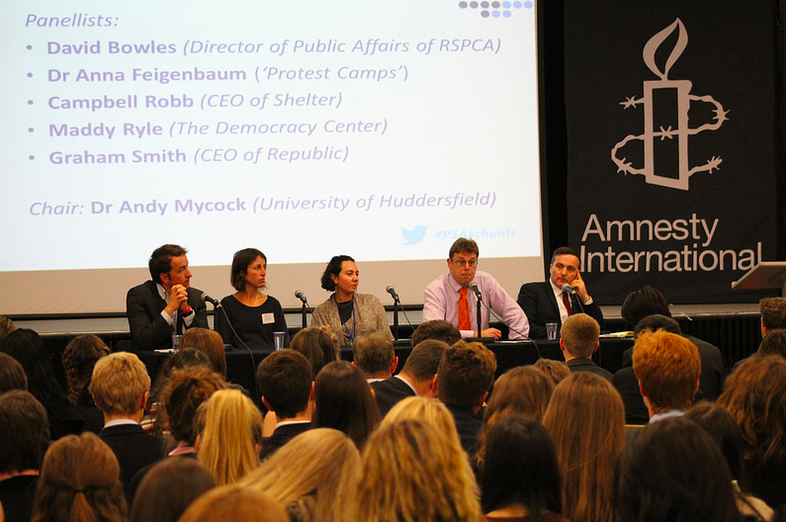
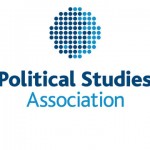 Political Studies Association: Sport and Politics Conference 2016
Political Studies Association: Sport and Politics Conference 2016 Engaging the public: putting the people back into democracy
Engaging the public: putting the people back into democracy










 Nursing Research REF Impact in Nepal
Nursing Research REF Impact in Nepal Fourth INRC Symposium: From Clinical Applications to Neuro-Inspired Computation
Fourth INRC Symposium: From Clinical Applications to Neuro-Inspired Computation ESRC Festival of Social Science 2025 – Reflecting back and looking ahead to 2026
ESRC Festival of Social Science 2025 – Reflecting back and looking ahead to 2026 3C Event: Research Culture, Community & Cookies – Tuesday 13 January 10-11am
3C Event: Research Culture, Community & Cookies – Tuesday 13 January 10-11am Dr. Chloe Casey on Sky News
Dr. Chloe Casey on Sky News ECR Funding Open Call: Research Culture & Community Grant – Application Deadline Friday 12 December
ECR Funding Open Call: Research Culture & Community Grant – Application Deadline Friday 12 December MSCA Postdoctoral Fellowships 2025 Call
MSCA Postdoctoral Fellowships 2025 Call ERC Advanced Grant 2025 Webinar
ERC Advanced Grant 2025 Webinar Horizon Europe Work Programme 2025 Published
Horizon Europe Work Programme 2025 Published Update on UKRO services
Update on UKRO services European research project exploring use of ‘virtual twins’ to better manage metabolic associated fatty liver disease
European research project exploring use of ‘virtual twins’ to better manage metabolic associated fatty liver disease